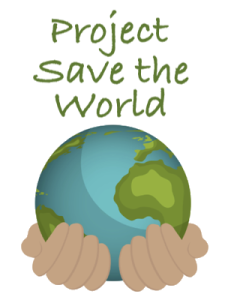Episode 379 Climate Fatalism
Anastasia Karimova, formerly a journalist in Russia but now a democracy activist in the US, explains why most Russians do not worry about climate change: they simply don’t trust any authorities anymore, after being “poisoned” with misinformation so long. We talk about the peat fires in Siberia and even a mountain burning inside in Canada. Then we turn to our various opinions about climate change, agreeing only on this: that the Glasgow COP26 meeting did not fulfill its responsibilities. Zachary Jacobson believes that nuclear power is going to be necessary. Both he and Art Hunter are extremely pessimistic about human survival, given the difficulties in mobilizing adequate responses. Metta challenges them all to choose among the various methods for removing carbon from the atmosphere and otherwise buying time for the necessary energy transformation. Hunter insists that the solutions have to involve austerity of living standards and a reduction in the size of the human population. Metta concludes by expressing disappointment that the group had spent time in fatalistic predictions of disasters and little in discussion potential alternatives.
Panelists:
• Art Hunter
• Anastasia Karimova
• Zach Jacobson
• Adam Wynne
Comments
To Post a Comment
Please wait a few seconds for the comments to load at the bottom of this page. Then read the ideas other people have shared and reply or add your own knowledge. The space for comments is in a pale font. It’s good to give your comment a title by selecting it and clicking the “B” (for “boldface”). And you can italicize passages with the “I”, indent, add hyperlinks (with the chain symbol) or even attach a photo or graphic from your hard drive by clicking the paperclip at the right side of the space. Have fun with it!
Head Office
- Box 248, Station P Toronto, Ontario, Canada M5S 2S7
- 1-416-789-2294
- project@peacemagazine.org

This discussion points out the complexity of the our dilemma. I assume the presenters likely have been educated in the western education system. Unfortunately this antiquated learning environment is creating knowledge conformity in a time we need knowledge diversity. As Einstein stated: we cannot solve the problems with the same thinking that created them. In my career as a geoscientist, I taught Grade 3 classes about rocks and minerals. In my interaction with these young inquisitive minds they asked questions that made me review some of the assumptions my university education held as gospel.
Us “experts” have to review our basic assumptions and interacting with youth is such a powerful method to open our biased (if not indoctrinated) minds to other perspectives. To answer Metta’s question of what we can do towards the “Project to Save the World” is to become mentors to our youth. Consciousness has to expand and what better way than having intergenerational dialogue through our education system? After adding a Master degree in Educational Foundations (2014) to my Master degree in Earth Sciences (2004-focused on sustainable development), this approach seems to be a no brainer!
I am on a mission to convince our Prime Minister and the Provincial Education Ministers that the mainstream education system must adopt “project-based learning” as a better way to engage the societal consciousness to change the mindset of our economic/consumption driven society. Why do we shut our energetic children in unnatural environments so far removed from the natural world and community building processes, when it is their future our decisions affect? Research shows most children lose their genius abilities after a few years of schooling. What does this suggest to us “experts”?
My strategy is to start a petition for national educational reform and take it to all government levels to initiate the project-based learning educational approach. I would love feedback from the Project Save the World Community!